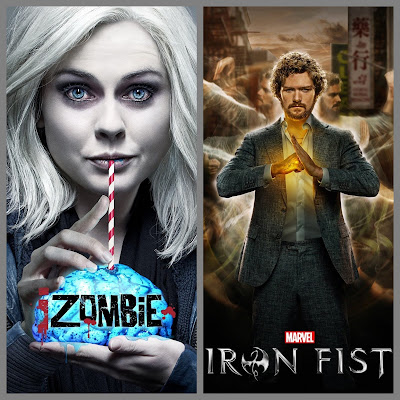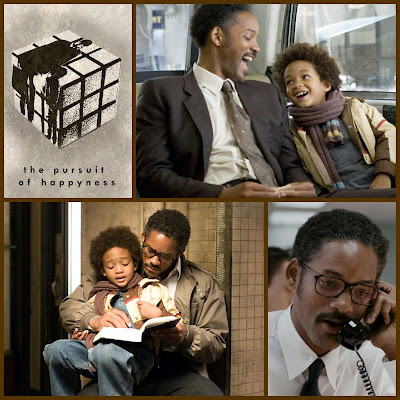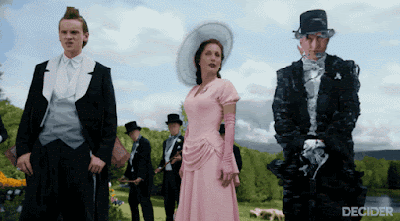'Fear the Walking Dead' Season 3 episode 5 review: Burning In Water, Drowning In Flame!
Seeing Daniel in this capacity, as a passenger, is a bit of a letdown after last week’s excellent 100. His most decisive action in 'Burning' is abandoning Strand at the Rosarita, which is now completely overrun by the dead. Otherwise, he comes across as a pawn, easily fooled by Strand’s self-serving fabrications. Where is Daniel headed now? Back to Efrain and Lola at the dam? Or is he hitting the road to find Ofelia on his own?
I know it sounds like I didn’t enjoy this episode, but the that is not true. I thought Nick and Alicia were great in their respective storylines. Each of them are grappling with their own demons. But we will go back to them in a bit.
In the meantime, the mystery of who shot down the chopper has finally been solved, but not before Madison and Troy make a gruesome discovery themselves. Not only do they find the ranch’s missing search team, they come upon Phil, the team leader. He’s perched on a chair, spouting gibberish as a crow gnaws on his exposed grey matter (it was disgusting). This bit disturbed me in a way that nothing else ever has in the Walking Dead universe. Credit must be given to Fear The Walking Dead for putting things like this on screen. Seeing Phil incapacitated in such a gruesome manner speaks to the everyday horrors of the end times, how we’re all just meat, waiting to fill some sort of creature’s belly. But it also speaks to the bad blood that exists between the ranch and Walker’s people. Walker, who’s Native-American, is seizing the apocalypse as a means for taking back land that is rightfully theirs. So, really, it’s only a matter of time before the Ottos and Walker’s people go to war, with the Clarks caught in the middle.
This brings us to my favourite, Nick, who has an interesting and rather deep heart to heart with Jeremiah about the nature of addiction and letting go of painful mistakes. That this conversation would take place in the charred remains of a house is fitting, given the destructive lives they’ve both lived. They both had to lose almost everything before they could rebuild themselves. And now, they must also rebuild a broken world and that can't be done singlehandedly. Nick’s worldview is hopeful, if not a bit naïve. He believes “us versus them” should mean the living against the dead, that humanity should band together in order to survive. Jeremiah scoffs at this idea, suggesting that it’s at times like these that people revert to their worst nature. In other words, protect your own. “Luci should go because she’s brown?” Nick asks Jeremiah, finally addressing the elephant that’s been in the room since the season started. Jeremiah sidesteps the question, but I do believe race is an important factor in the Otto family’s dynamic. Is it any coincidence that Luciana is the darkest person in the entire ranch? And is it any surprise that she finally ups and leaves?
For a while there it looked as though Alicia was going to leave too and leave this whole earthly existence behind. She’s a strong character in the TWD sense. She’s proven she can handle herself against the dead, saving not only herself, but the less capable, too. You’d want her to have your back in the apocalypse, certainly. But her own dark thoughts are now working against her, inoculating her against optimism. This doesn’t stop her and Jake from sleeping together, but it does stop her from accepting a book of poetry that gives the episode its title, namely Charles Bukowski’s Burning In Water, Drowning In Flame. Alicia doesn’t see the point in reading poetry anymore and I can understand her point because to be fair, in a world in which crows gnaw at the living and the dead walk the earth, reading a book would be very, very low on a list of urgent priorities but that being said I think you need a little normalism, something that reminds us we are human and that, that means something. If we forget ourselves, forget who we are and where we came from, if that happens, day-to-day survival becomes the bare minimum, nothing more. Which then brings us back to Alicia's question: What's the point? Jake understands we can never abandon the very cultural artifacts that bring with them light and hope. He is not his father's son in this regard. Like Nick, he doesn't see the beauty in an armed existence. He knows there's more to life than meting out death and destruction.






Comments
Post a Comment